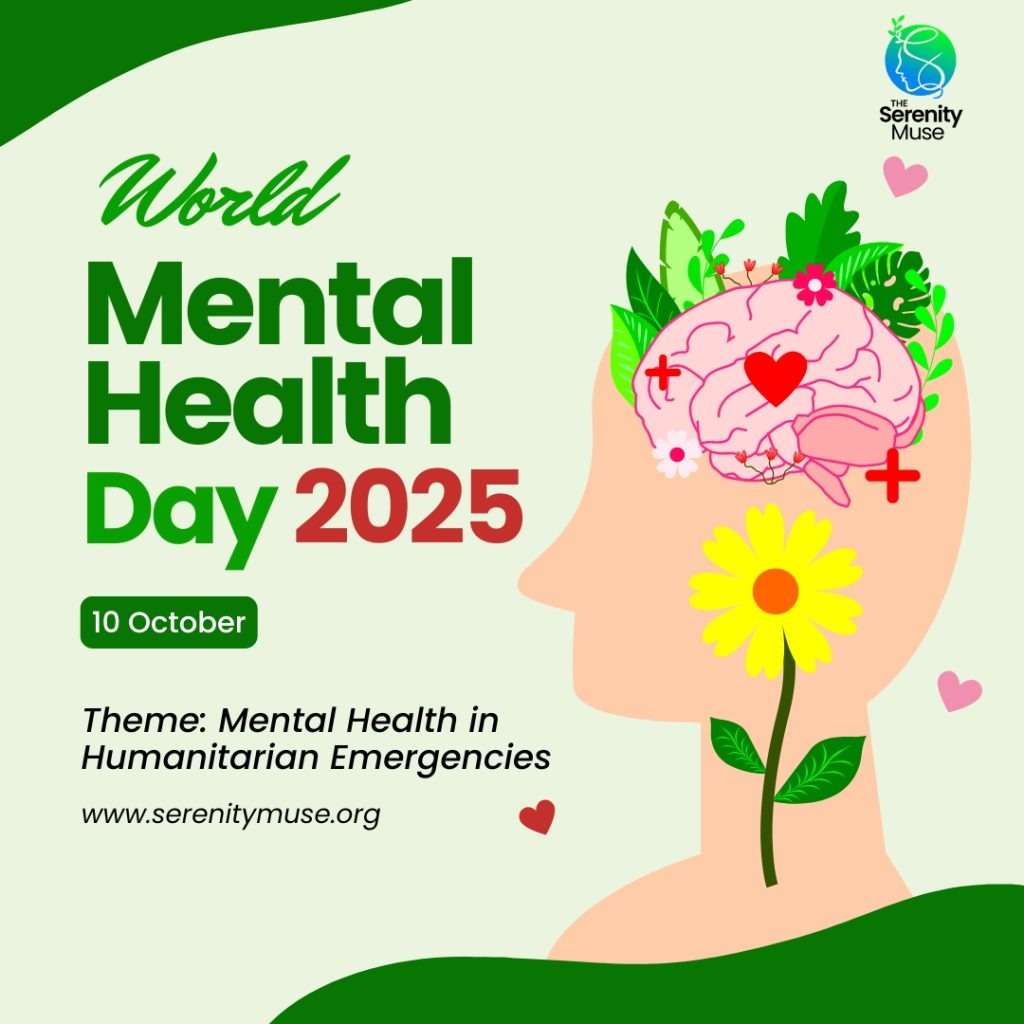There is no health without mental health.
The Day the World Must Pause and Listen
Every 10th of October, the world stops for a moment to talk about what most people suffer in silence: mental health.
But this year, the conversation cuts deeper.
Because while the world scrolls, posts, and moves on, millions are living through invisible wars that never make the headlines, inside refugee camps, disaster zones, conflict regions, and quiet homes that feel like battlefields.
This year’s theme, “Mental Health in Humanitarian Emergencies,” is not just another campaign slogan.
It’s a wake-up call to humanity itself.
Behind Every Crisis, There’s an Untold Story
When war breaks out, we count casualties, not traumas.
When floods destroy homes, we rebuild buildings, not minds.
When pandemics spread, we track numbers, not nightmares.
But here’s the uncomfortable truth: for every physical wound healed, there are a hundred invisible ones left untreated.
Crises don’t just break systems. They break spirits.
And if we ignore the mental and emotional fallout, we are only rebuilding shells of what used to be whole lives.
One in every five people in humanitarian emergencies suffers from a mental health condition.
That’s not a statistic. That’s a silent cry for help from someone’s mother, child, or friend.
Healing the Mind Saves Lives
Mental health support in emergencies is not optional; it’s lifesaving.
A person who finds emotional stability in the middle of chaos finds the strength to keep going, to care for others, and to rebuild their community.
This is what mental health support truly does;
-
It gives the broken a reason to rise again.
-
It gives the fearful a sense of safety.
-
It gives the displaced a sense of belonging.
-
And it gives communities the resilience to recover and rebuild.
Because every healed mind becomes a seed of hope and hope is what sustains nations through crisis.
When Humanity Shows Up
The responsibility to protect mental well-being doesn’t rest on psychologists alone.
It belongs to all of us.
Governments must create policies that prioritize psychosocial support.
Schools must teach children how to process fear and loss, not just formulas.
Health workers must be equipped to heal minds, not just bodies.
Communities must learn to listen, to sit with pain, and to make space for others’ healing.
When humanity shows up, truly shows up, mental health becomes a shared mission, not a private burden.
Invest in Healing That Lasts
It’s time to invest not just in infrastructure, but in inner structure.
When we invest in evidence-based, community-driven mental health programs, we’re not just helping people survive, we’re helping them thrive.
A safe shelter without mental safety is just a temporary fix.
Real recovery begins when people can think clearly, feel safely and believe that life still has meaning.
So as we face humanitarian crises, whether it’s war, climate disasters, or global health threats, our healing strategies must evolve.
Because a resilient world begins with resilient minds.
This World Mental Health Day: Choose to See
Today, don’t just post a hashtag.
Look deeper.
Look into the eyes of those who’ve survived disasters, displacement, and despair and remember that healing the mind is as vital as rebuilding the land.
Let’s create a world where mental health is valued, protected, and accessible to all, especially those living through unimaginable crises.
Let this be the year we stop treating mental health as secondary care and start treating it as essential care.
Together, we can make mental health a universal right, even in the darkest of times.
Because when we heal minds, we heal humanity.
#WorldMentalHealthDay #MentalHealthForAll #HumanitarianCare #MentalHealthMatters #HealingHumanity
Learn More:
Visit the World Federation of Mental Healthfor this year’s global campaign and resources.


